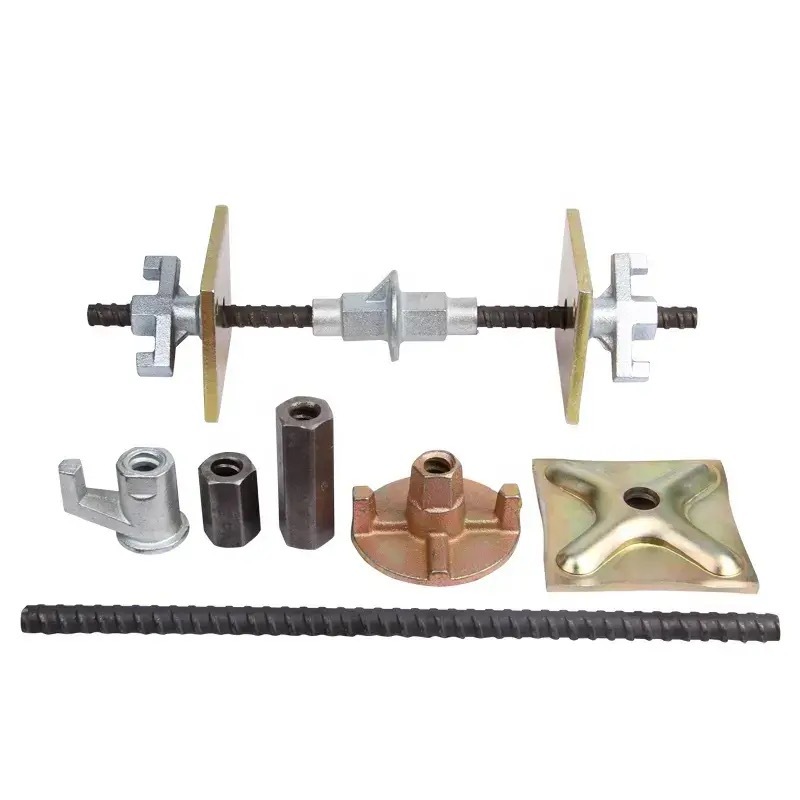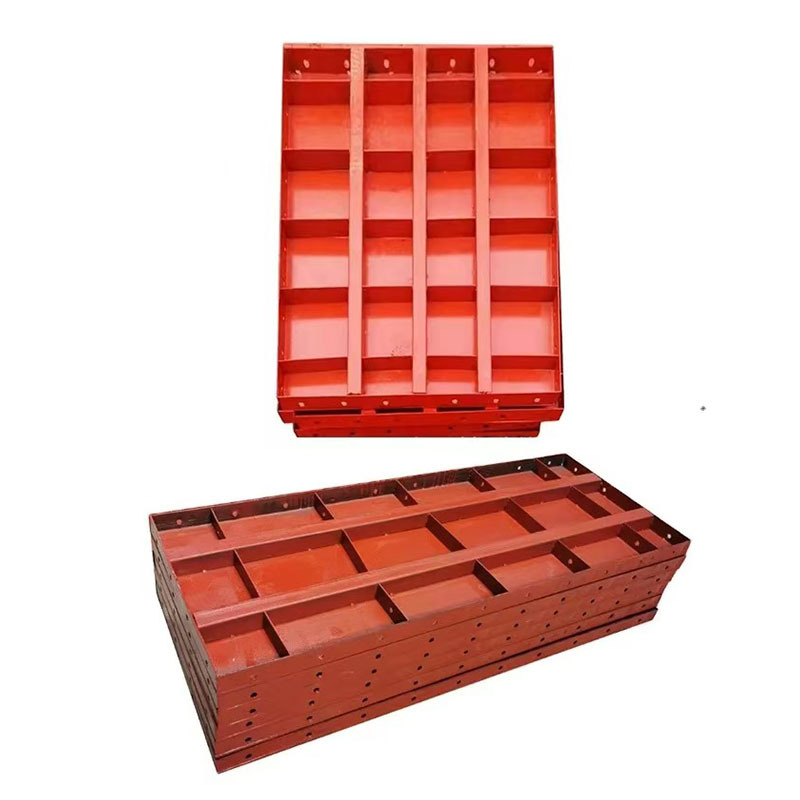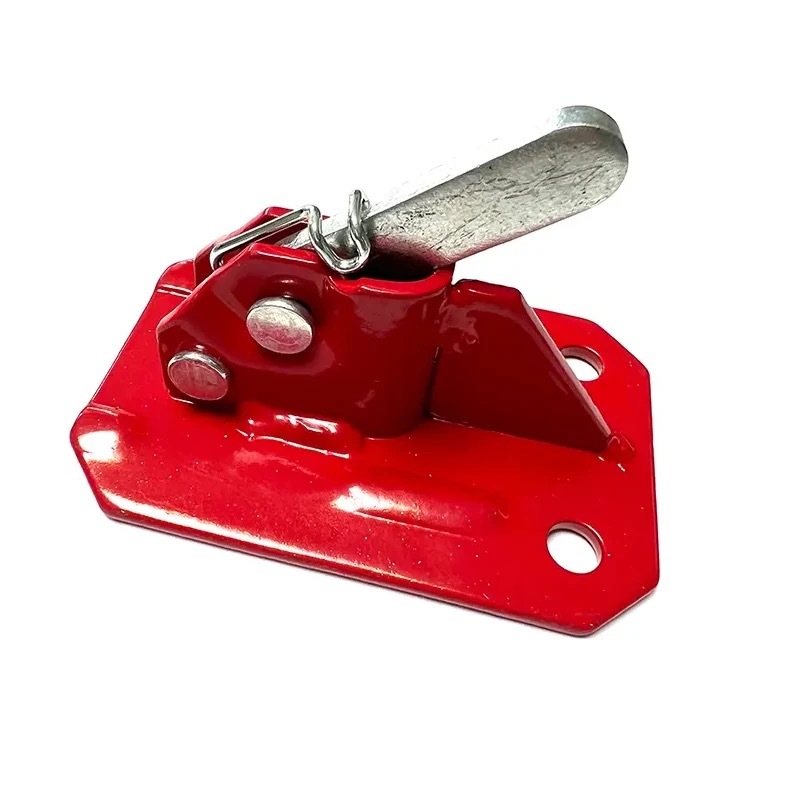The Science Behind Disc Nuts: How They Work and Why They Matter
The Science Behind Disc Nuts: How They Work and Why They Matter Table of Contents 1. Understanding Disc Nuts: An Overview 2. The Design of Disc Nuts: Key Features 3. How Disc Nuts Work: The Mechanics 4. Benefits of Using Disc Nuts in Industrial Applications 5. Applications of Disc Nuts Across Industries 6. Maintenance and Installation Tips for Disc Nuts 7. Common Issue

The Science Behind Disc Nuts: How They Work and Why They Matter
Table of Contents
- 1. Understanding Disc Nuts: An Overview
- 2. The Design of Disc Nuts: Key Features
- 3. How Disc Nuts Work: The Mechanics
- 4. Benefits of Using Disc Nuts in Industrial Applications
- 5. Applications of Disc Nuts Across Industries
- 6. Maintenance and Installation Tips for Disc Nuts
- 7. Common Issues with Disc Nuts and Their Solutions
- 8. Frequently Asked Questions
- 9. Conclusion
1. Understanding Disc Nuts: An Overview
Disc nuts, an essential component in fastening technology, are designed to accommodate high loads while ensuring a secure fit. They are typically used in applications where traditional nuts may not provide the necessary grip or stability. Unlike standard nuts, disc nuts feature a flat, circular design that enhances their performance in various industrial settings. By understanding their unique structure, we can better appreciate their functionality and significance.
2. The Design of Disc Nuts: Key Features
The design of disc nuts is crucial to their effectiveness. Here are some key features that distinguish them from other fastening components:
2.1 Flat Circular Shape
The flat circular shape of disc nuts allows for a larger surface area, which helps distribute the load evenly. This design minimizes stress concentration and reduces the risk of deformation under heavy loads.
2.2 Threaded Center Hole
Disc nuts are equipped with a threaded center hole that allows for easy installation onto threaded bolts and rods. This feature ensures a secure fit, preventing loosening due to vibrations.
2.3 Material Composition
Typically made from materials such as steel, aluminum, or specialized alloys, the strength and durability of disc nuts are paramount. The choice of material affects their performance in various environments, making it essential to select the right type for specific applications.
2.4 Surface Finish
The surface finish of disc nuts can influence their resistance to corrosion and wear. Options like zinc plating or anodizing can enhance their longevity and performance in harsh conditions.
3. How Disc Nuts Work: The Mechanics
Understanding how disc nuts function is essential for maximizing their effectiveness in practical applications.
3.1 Load Distribution
When a disc nut is tightened onto a bolt, the load is distributed over its entire flat surface. This distribution reduces localized pressure that could lead to failure, allowing the assembly to withstand greater forces without compromising integrity.
3.2 Prevention of Loosening
Thanks to their design, disc nuts are less likely to loosen due to vibration compared to traditional nuts. The larger surface area creates friction that helps maintain tension, ensuring the assembly remains secure over time.
3.3 Compatibility with Various Fastening Systems
Disc nuts are versatile and can be used with a range of fastening systems. Their design allows them to work seamlessly with different types of bolts and screws, making them a popular choice in various industries.
4. Benefits of Using Disc Nuts in Industrial Applications
The advantages of using disc nuts extend beyond their unique design. Here are some key benefits:
4.1 Enhanced Load Capacity
Disc nuts excel in applications that require high load capacities. Their ability to distribute loads evenly makes them ideal for heavy machinery and structural applications.
4.2 Increased Stability
Their design offers superior stability, particularly in applications subjected to dynamic loads. This stability helps prevent failures that could result in costly downtime or accidents.
4.3 Reduced Risk of Corrosion
Depending on the chosen material and surface finish, disc nuts can exhibit excellent resistance to corrosion. This durability is vital in industries like construction, automotive, and marine, where exposure to harsh elements is common.
4.4 Cost-Effectiveness
While disc nuts may have a higher upfront cost compared to traditional nuts, their durability and performance can lead to significant cost savings in the long run. Reduced maintenance and replacement needs enhance overall value.
5. Applications of Disc Nuts Across Industries
Disc nuts find their applications in various sectors due to their unique properties. Here are some industries where they play a critical role:
5.1 Automotive Industry
In the automotive sector, disc nuts are used in assembly processes where high torque and vibration resistance are required. They are essential in securing components like suspension systems and engine mounts.
5.2 Construction and Engineering
In construction, disc nuts are utilized to fasten structural elements. Their capacity to withstand heavy loads makes them indispensable in building bridges, towers, and other infrastructures.
5.4 Aerospace Applications
The aerospace industry demands components that can endure extreme conditions. Disc nuts are used in various aircraft systems, offering reliability and performance in high-stress environments.
5.5 Machinery and Equipment
Manufacturing machinery often uses disc nuts due to their ability to maintain stability under dynamic loads. They ensure that critical components remain securely fastened during operation.
6. Maintenance and Installation Tips for Disc Nuts
Proper installation and maintenance of disc nuts can significantly extend their lifespan and performance.
6.1 Installation Guidelines
- **Ensure Clean Threads**: Before installing, clean the threads of the bolt and the disc nut to prevent debris from affecting the fit.
- **Use the Right Tools**: Utilize appropriate tools, such as torque wrenches, to achieve the correct tightening torque.
- **Follow Manufacturer Specifications**: Always adhere to the manufacturer's guidelines for installation to ensure optimal performance.
6.2 Maintenance Practices
- **Regular Inspections**: Conduct routine checks to identify signs of wear or corrosion.
- **Lubrication**: Apply a suitable lubricant to the threads if necessary to enhance performance and prevent seizing.
- **Replace Damaged Components**: Replace any damaged disc nuts promptly to maintain structural integrity.
7. Common Issues with Disc Nuts and Their Solutions
While disc nuts are reliable, issues can arise. Here are common problems and their solutions:
7.1 Loosening Over Time
Even though disc nuts are designed to resist loosening, it can still occur. Regularly check and re-torque as necessary.
7.2 Corrosion Damage
If corrosion is detected, consider replacing the affected nuts with ones made from corrosion-resistant materials or re-coating the existing ones.
7.3 Improper Fit
An improper fit can compromise performance. Ensure that the correct size and thread pitch are used for the bolts and disc nuts.
8. Frequently Asked Questions
8.1 What are disc nuts made of?
Disc nuts can be made from various materials, including steel, aluminum, and specialized alloys, depending on the application’s requirements.
8.2 How do I choose the right disc nut for my project?
Consider factors such as load capacity, environmental conditions, and compatibility with existing components when selecting a disc nut.
8.3 Are disc nuts reusable?
Yes, disc nuts can be reused if they show no signs of damage or wear. However, always inspect them thoroughly before reinstallation.
8.4 Can disc nuts handle extreme temperatures?
Yes, certain materials used in disc nuts can withstand extreme temperatures. Always refer to the manufacturer's specifications to ensure suitability.
8.5 What is the cost difference between disc nuts and traditional nuts?
Disc nuts may have a higher initial cost, but their durability and performance can lead to long-term savings in maintenance and replacement costs.
9. Conclusion
Disc nuts play a vital role in various industrial applications, offering unmatched performance and reliability. Their unique design allows for effective load distribution, enhanced stability, and resistance to loosening. By understanding their mechanics and benefits, industries can make informed decisions about incorporating disc nuts into their fastening solutions. As technology evolves, the significance of disc nuts in maintaining structural integrity across various applications is expected to grow, making them an indispensable component in modern engineering.
Key words:
PREVIOUS:
PRODUCT SEARCH
Search And Quickly Find The Products You Need
With advantages in technology, quality, and service, the company is steadily advancing in the industry, continuously providing high-quality hydraulic rubber products and services to global customers, demonstrating strong development potential and broad market prospects.










